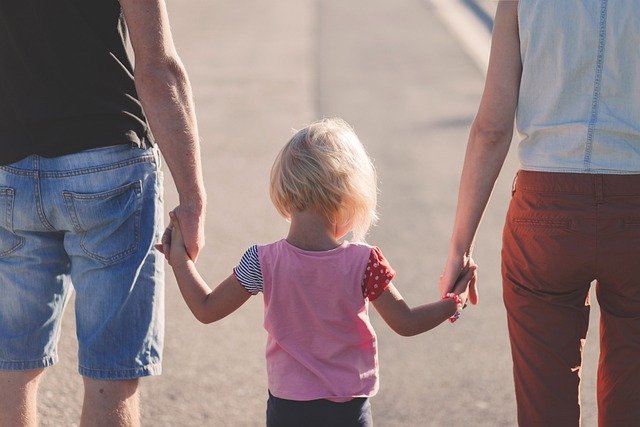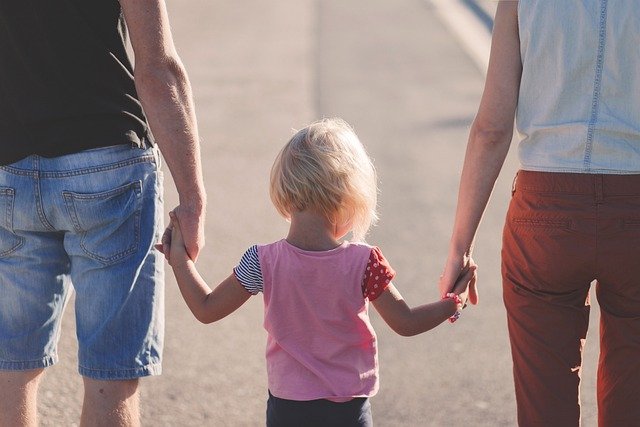As more parents realize how important it is to raise their children responsibly and with an awareness of the environment, sustainable parenting—which is based on eco-friendly decisions and green parenting techniques—is gaining traction. Adopting a sustainable parenting style becomes more than simply a choice in a world when environmental concerns are becoming worse. The fundamentals of sustainable parenting, the significance of making eco-friendly decisions, and doable tactics for raising kids who care about the environment are all covered in this essay.

Recognizing the Benefits of Sustainable Parenting
Definition and Guideline
Making decisions as a parent that put the health of the environment and the children first is known as sustainable parenting. It includes a variety of actions, such as encouraging youngsters to have a strong appreciation for environment and engaging in eco-conscious consumerism. Reducing environmental impact, encouraging ethical consumerism, and instilling in the next generation a sense of environmental stewardship are the three main tenets of sustainable parenting.
Extended Advantages
Beyond its immediate effects on the environment, sustainable parenting builds the foundation for a more sustainable future. Parents help shape a generation that prioritizes and appreciates sustainability by teaching their kids the value of making eco-friendly decisions. This has a beneficial knock-on impact on the environment.
Green Parenting Techniques
Using Cloth Diapers
Rethinking diaper selection is a key component of sustainable parenting. Disposable diapers take hundreds of years to break down, adding to landfill garbage. Using cloth diapers is a cost-effective and environmentally responsible substitute that minimizes waste generation. This section explores the advantages and drawbacks of using cloth diapers and provides helpful advice for parents who are thinking about making this environmentally friendly decision.
Eco-Friendly Feeding Options and Breastfeeding
Since breastfeeding doesn’t involve the production, packing, or shipping of formula, it is naturally environmentally beneficial. But it becomes even more important for parents who are unable to breastfeed to look into environmentally friendly feeding choices like reusable containers and organic formulae. This section offers guidance on making sustainable decisions by examining the effects of various feeding options on the environment.
Eco-Friendly Clothes Options
Fast fashion has a major negative impact on the environment, resulting in textile waste and water contamination. Making thoughtful decisions about what to dress your kids entails choosing clothes that are made ethically and organically. The essay examines how the fashion industry affects the environment and offers substitute methods for creating a kid’s wardrobe that is sustainable.
Green Playthings & Toys
Because of the materials and methods used in their manufacture, toys often contribute to environmental deterioration. Choosing toys with eco-friendly materials, advocating toy consumption minimalism, and fostering creative, outside play are all examples of sustainable parenting. This section addresses how toys affect the environment and provides suggestions for play that is sustainable.

Bringing Up Environmentally Aware Kids
Education on the Environment
Fostering in their children a feeling of environmental responsibility and knowledge is a key component of sustainable parenting. Age-appropriate environmental education may help accomplish this by educating kids about the value of recycling, conservation, and the interdependence of all living things. The post offers doable methods for integrating environmental education into regular parenting.
Nature Connection and Outdoor Activities
Children who are encouraged to spend time outside develop a love and respect for the environment as well as a connection with nature. This section promotes a sustainable and healthful lifestyle by examining the advantages of outdoor activities and offering ideas for integrating nature into everyday routines.
Sustainable Living and Community Involvement
Beyond personal preferences, sustainable parenting involves community activism and involvement. The significance of immersing kids in neighborhood environmental projects is covered in this section, since it helps them develop a feeling of global responsibility. It also looks at how families might adopt sustainable lifestyles, such as cutting down on energy use and patronizing nearby eco-friendly companies.
Eco-Friendly Household Methods
Efficiency in Energy Use
Eco-friendly parenting’s cornerstone is setting up a sustainable household. Energy-saving techniques, including switching to LED lighting, buying energy-efficient equipment, and making sure the home is properly insulated, not only lessen the carbon footprint of the family but also provide a good example for kids. This section discusses the role that energy efficiency plays in sustainable parenting and offers helpful advice on how to make your house eco-friendly.
Recycling and Waste Reduction
Sustainable parenting includes reducing waste and using recycling techniques. This section explores the significance of recycling, composting, and waste reduction and provides advice on how to put these habits into practice in a family environment. Educating kids about product life cycles and the effects of waste on the environment helps them develop a sense of responsible consumerism.
Transportation That Is Sustainable
Selecting environmentally responsible modes of transportation is just another facet of eco-friendly parenting. In addition to lowering carbon emissions, walking, cycling, carpooling, or using public transit gives kids a chance to interact with their environment. This section looks at how various modes of transportation affect the environment and offers tips on how parents may make sustainable travel a regular part of their daily lives.
Consumption with Ethics
Encouragement of Eco-Friendly Brands
Being an eco-friendly parent means choosing items for the family with consideration. The significance of endorsing companies that uphold fair labor standards, sustainable business methods, and ethical sourcing is covered in this section. By purchasing items from businesses that practice environmental responsibility, parents help create demand in the market for sustainable products and teach their kids the importance of ethical consumption.

Buying Used Items
Choosing used goods decreases the need for new manufacture and is a sustainable decision for everything from toys to furniture to clothes. Parents may adopt a circular economy via neighborhood swaps, internet marketplaces for used goods, and thrift shops. This section discusses the advantages of purchasing secondhand and provides advice on incorporating these activities into family life.
Overcoming Obstacles
There are obstacles to sustainable parenting, from cultural norms to the ease of use of throwaway goods. This section discusses typical roadblocks and offers solutions for them. It highlights how crucial it is to manage the challenges of incorporating eco-friendly options into parenting by setting a supporting example, making tiny, incremental adjustments, and having a supportive community.
Technology’s Place in Eco-Friendly Parenting
In the era of digitalization, parenting and child development are greatly influenced by technology. Given its effects on the environment, ethical technology usage is also a component of sustainable parenting. This section looks at ways to balance the advantages of technology with its environmental impact, choose eco-friendly devices, and incorporate sustainable behaviors into screen time. Parents may use technology to benefit the environment while instilling in their children ideals of sustainability by encouraging a thoughtful approach to technology.
Parenting sustainably and fostering community
For parents who practice sustainable parenting, it is essential to establish a community of like-minded parents. The significance of shared experiences, information sharing, and group action is emphasized in this section. Parents may build a network of support that amplify the effect of individual decisions and promote sustainable ideals by planning eco-friendly playgroups or organizing community clean-ups. Families overcoming the obstacles of sustainable parenting get inspiration and emotional support from their sense of community.
Fostering Children’s Emotional Resilience
Beyond only being aware of the environment, sustainable parenting focuses on building children’s emotional resilience so they can face the difficulties of a changing world. This section examines the relationship between emotional health and environmental awareness and offers suggestions for helping kids develop resilience, flexibility, and empathy. Parents may provide their kids the skills they need to deal with a future when environmental challenges could become more common by helping them develop emotional intelligence.
Policy Participation and Advocacy
Beyond the confines of individual homes, sustainable parenting involves systemic transformation. When it comes to local and global policy advocacy, parents may make a significant contribution to environmental sustainability. This section looks at how parents may become involved in advocacy work, interact with legislators, and help shape laws that will help create a more environmentally friendly future. Parental involvement in the environmental movement broadens its influence and promotes systemic change.
Thoughts on Eco-Friendly Parenting: Individual Narratives and Perspectives
The piece gains a human touch by including firsthand accounts and insightful commentary from parents who practice sustainable parenting. This section includes stories, obstacles encountered, and victories of families making environmentally conscious decisions. Readers considering a change to a more ecologically aware lifestyle will find inspiration and relatability in the real-life examples that highlight the variety of approaches to sustainable parenting.
Examining the Future: The Prospects for Sustainable Parenting
The field of sustainable parenting changes along with society. This section makes predictions about the future of environmentally responsible parenting, taking into account possible developments in technology, changes in cultural norms, and the importance of education. Parents may continue to set the example for building a sustainable future for their children and future generations by being knowledgeable and adaptable.
Materials for Eco-Friendly Parenting
This section offers a thorough list of resources to help parents on their path to sustainable parenting. These might include suggested reading lists, movies, internet forums, and groups centered on eco-friendly parenting and living. Parents who have access to trustworthy information are better equipped to interact with like-minded others and make educated decisions.
In summary
Sustainable parenting is a comprehensive strategy that includes moral behavior, eco-friendly decisions, and raising kids who care about the environment. By using sustainable parenting practices, parents help to create a generation that prioritizes and appreciates a greener future while also minimizing their own ecological impact. Parents looking to make sustainable decisions that will benefit the environment for future generations should use the helpful advice and insights in this article as a guide.



